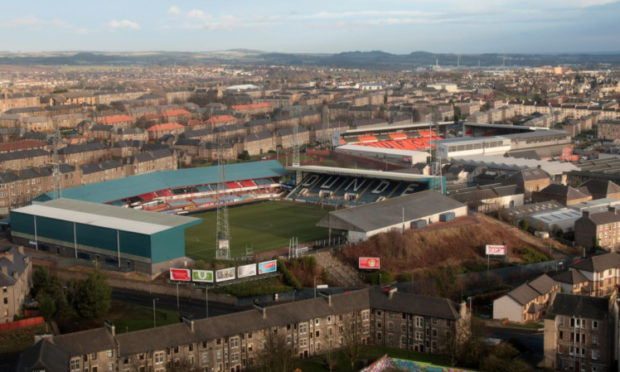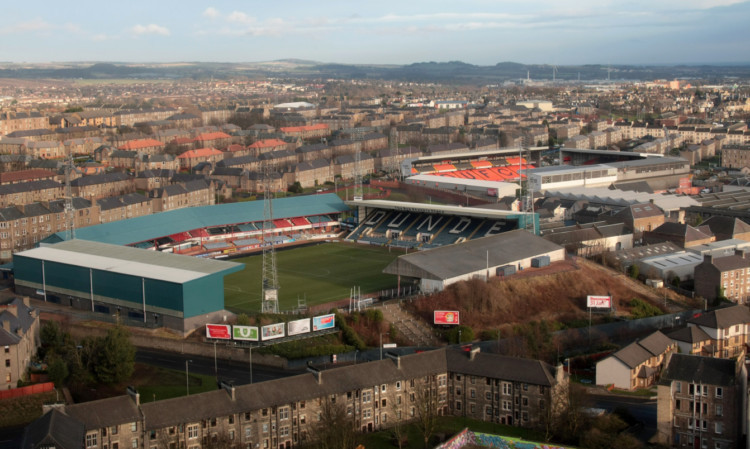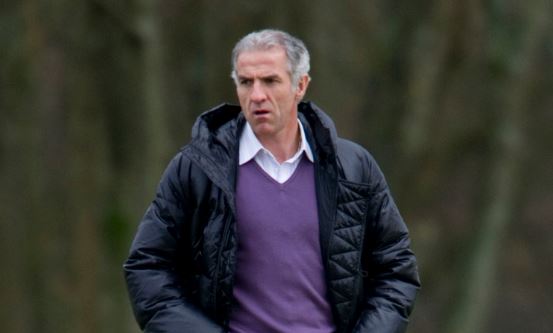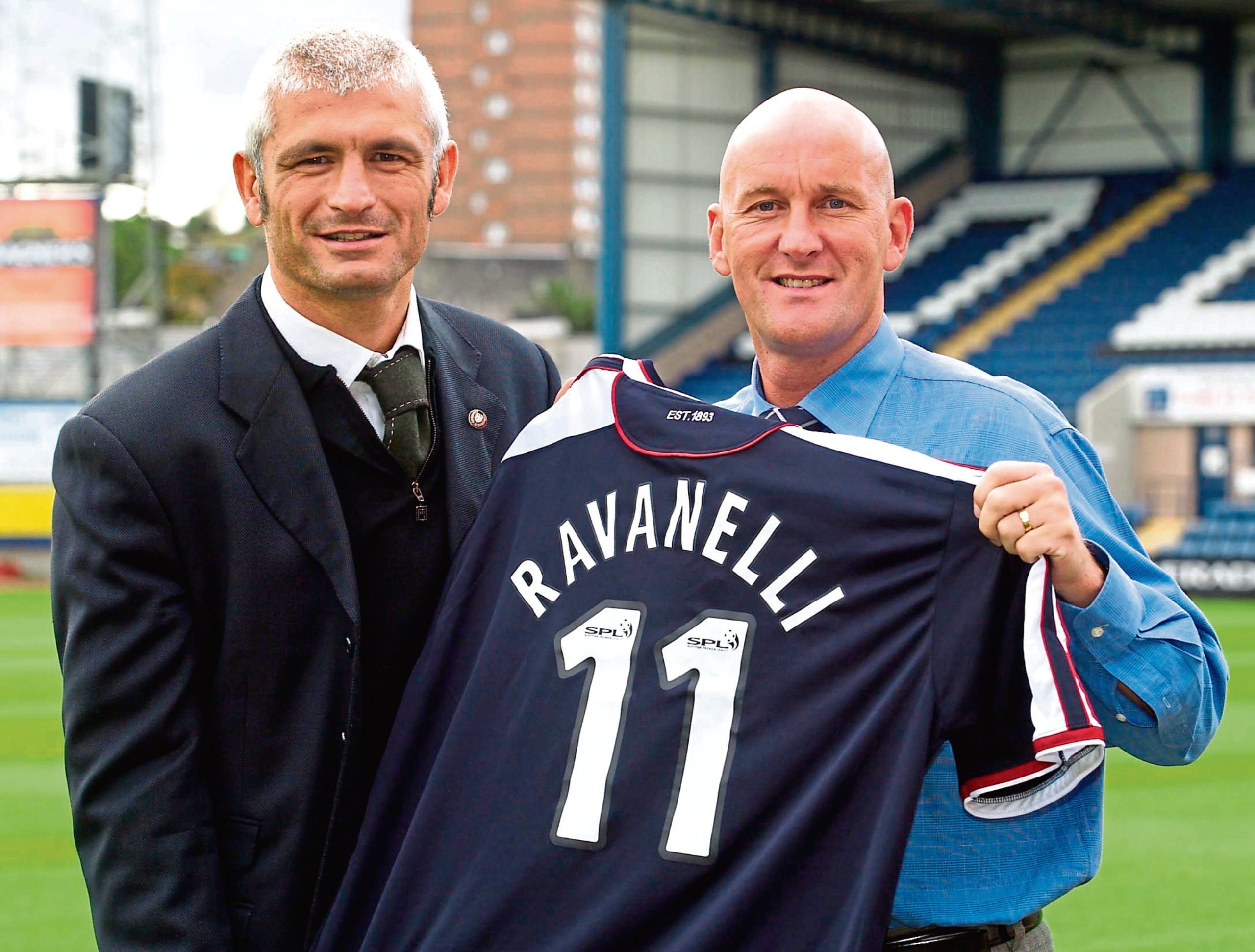The 21st century is not yet 20-years-old but, between them in that time, Tannadice Street rivals Dundee and Dundee United have managed to work their way through 23 managers.
That astonishing turnover rate tells you one thing – the past nineteen-and-a-half years at Dens Park and Tannadice have been turbulent.
We know that because, with very few exceptions, clubs change managers so frequently for one reason and one reason alone – because of a lack of success on the park.
In the case of the Tangerines and Dark Blues, that failure to get the desired results has often coincided with off-field problems as well.
The first two decades of the millennium have seen Dundee plunge into administration twice and, in effect, there has been no fewer than five changes when it comes to the men running the club from the boardroom.
At United, there have also been five changes in the chairman’s seat and, if success has come in the shape of the 2010 Scottish Cup win, several near things in other finals and a string of healthy league finishes, there has also been relegation, financial crises and rebellion among the rank-and-file support.
With so much going on behind the scenes, it’s arguably not surprising many managers have struggled to assemble teams capable of sustaining success over a prolonged period.
Tele Sport continues today with its second piece in a five-part series on the city’s ‘Millennium Managers’ . . .
Having had a close scrape with relegation the previous year, the 2001/02 campaign saw Alex Smith manage to steer Dundee United away from such danger.
If it was a season that could be best described as ordinary on the park, off it tumultuous events were brewing.
Fan unrest had reached a peak and, during the course of the year, it became clear change in the boardroom was likely.
Local millionaire John Bennett – as he would later at Dundee – came close to taking control but eventually the United for Change movement, set up by disgruntled supporters, won the day and Eddie Thompson became owner early in the 2002/03 campaign.
That quickly marked the end of Smith’s time in charge.
Initially, that saw assistants, club legends Paul Hegarty and Maurice Malpas, handed responsibility for running the team, with Hegarty as manager and Malpas his No 2.
With the team still struggling for results, however, by the turn of the year it was clear their positions, which had never looked particularly secure, were in jeopardy.
It was no real surprise when, within hours of a midweek defeat at Celtic at the end of January, that the axe fell on two of the club’s greatest-ever servants.
Within hours, a new management team of rising stars Ian McCall and Gordon Chisholm were poached from Falkirk and a bright new era was promised.
For all, however, McCall had a successful time before and after, his tenure at United never reached the expected heights.
He did secure a top-six finish in his first full season but 2004/05 saw them struggle and, in March, a few weeks after a horrific 7-1 League Cup semi-final hiding at the hands of Rangers, Thompson called time on his reign.
Assistant Chisholm was handed the job, initially on an interim basis, and there was something of a revival as United reached the Scottish Cup Final, only to go down 1-0 to Celtic at Hampden.
They only avoided relegation via a 1-0 final-day victory at Inverness but Chisholm had still done enough to be handed a permanent contract.
His time, though, was to be short lived and, as the on-field toils continued into the following campaign, he lost his job in January 2006.
Enter Craig Brewster, 1994 Scottish Cup Hampden hero, and who had a blossoming reputation in management via a successful spell in Inverness.
What should have been the perfect appointment did not pan out that way.
It was quickly apparent Brewster and Thompson did not see eye to eye but even more problematic were results.
Player-manager Brewster could not buy a win and his 10 months in charge would produce just two league victories.
By October 2006, the Tangerines were in danger of being cast adrift and it was time for Thompson to try to find another messiah and he did so in the shape of Craig Levein.
While all that was happening, at Dundee times were even more troubled.
Read more from our Millennium Managers series here
Ivano Bonetti, despite turning up for the first day of pre-season training, had departed in 2002 and that saw old favourite Jim Duffy arrive for a second spell as manager.
Initially, things went well and a fantastic post-winter split run saw Dundee perform well in the league and reach the 2003 Scottish Cup Final, where they were a touch unfortunate to go down to Alex McLeish’s Rangers.
While the dire nature of the situation was being hidden from the public, even by then those in charge were battling crippling debts that were the result of reckless spending.
It continued early in season 2003/04 as Italian superstar Fabrizio Ravanelli and Scotland international Craig Burley were signed up.
Duffy continued to do a good job with the team and they put up a creditable showing in the Uefa Cup before narrowly losing to Italians Perugia.
By November, however, the game was up and Dundee plunged into administration with debts of between £17 million and £23 million.
Most of the big earners in the squad saw their contracts cancelled and, so far as maintaining playing success, that pulled the rug from under the manager’s feet.
Off the park he became the club’s leader and it should never be forgotten how big a part he played in the battle for survival.
He also kept the team in the top flight in 2004, but, as the financial woes continued, could not prevent relegation a year later.
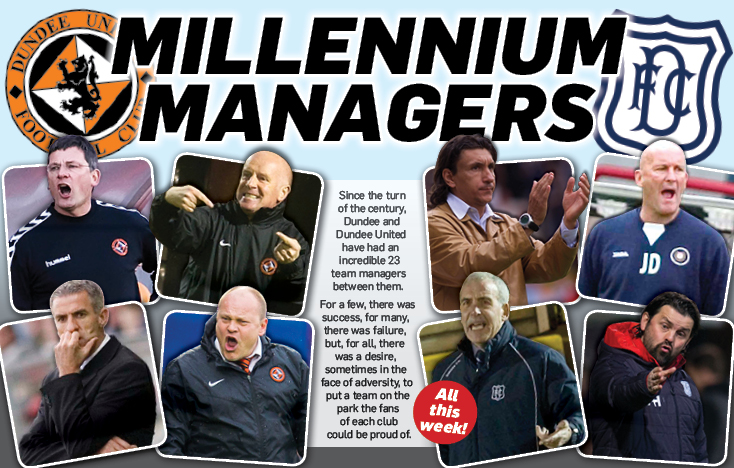
Worn down by the experience, he departed early the following season to be replaced by Alan Kernaghan but Dundee’s troubles were far from over.
In the next part of Millennium Managers: The Levein era signals a big change at United – and Dundee’s toils continue.
